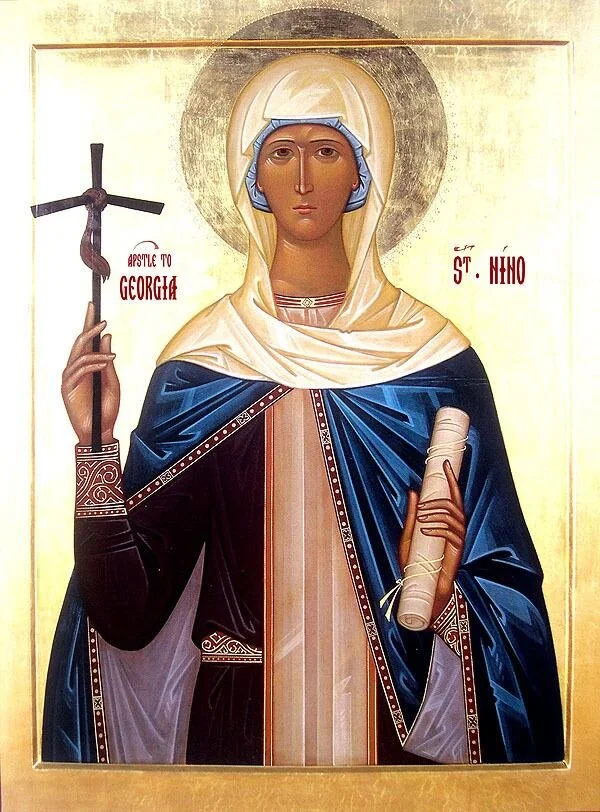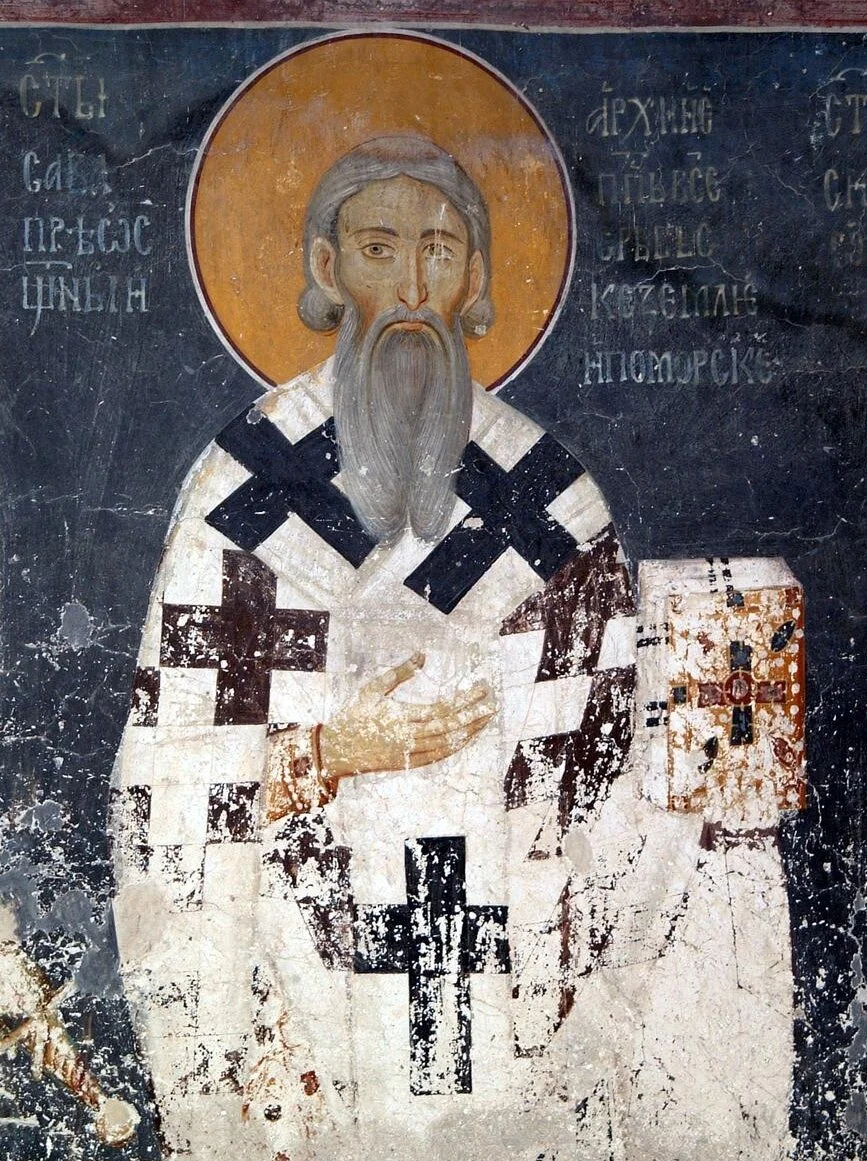At that time Jesus returned from the Jordan, and was led by the Spirit for forty days in the wilderness, tempted by the devil. And he ate nothing in those days; and when they were ended, he was hungry. The devil said to him, "If you are the Son of God, command this stone to become bread." And Jesus answered him, "It is written, 'Man shall not live by bread alone.'" And the devil took him up, and showed him all the kingdoms of the world in a moment of time, and said to him, "To you I will give all this authority and their glory; for it has been delivered to me, and I will give it to whom I will. If you, then, will worship me, it shall all be yours." And Jesus answered him, "It is written, 'You shall worship the Lord your God, and him only shall you serve.'" And he took him to Jerusalem, and set him on the pinnacle of the temple, and said to him, "If you are the Son of God, throw yourself down from here; for it is written, 'He will give his angels charge of you, to guard you,' and 'On their hands they will bear you up, lest you strike your foot against a stone.'" And Jesus answered him, "It is said, 'You shall not tempt the Lord your God.'" And when the devil had ended every temptation, he departed from him until an opportune time. And Jesus returned in the power of the Spirit into Galilee, and a report concerning him went out through all the surrounding country. And he taught in their synagogues, being glorified by all. ~ At that time Jesus returned from the Jordan, and was led by the Spirit for forty days in the wilderness, tempted by the devil. And he ate nothing in those days; and when they were ended, he was hungry. The devil said to him, "If you are the Son of God, command this stone to become bread." And Jesus answered him, "It is written, 'Man shall not live by bread alone.'" And the devil took him up, and showed him all the kingdoms of the world in a moment of time, and said to him, "To you I will give all this authority and their glory; for it has been delivered to me, and I will give it to whom I will. If you, then, will worship me, it shall all be yours." And Jesus answered him, "It is written, 'You shall worship the Lord your God, and him only shall you serve.'" ~ Luke 4:1-15
Saint Nina, Equal to the Apostles and Enlightener of Georgia (335) She is called "Nino" in many accounts. This holy maiden was a Cappadocian, the only daughter of Zabullon, a kinsman of the Great Martyr George. She was captured and enslaved by the Iberians (later called the Georgians) and taken away to their homeland. In captivity, she lived a sober and pious life, devoting every free moment day and night to prayer. Her exceptional virtue attracted the attention of many, especially those hungry for Truth, and she simply and boldly proclaimed the Gospel to all who inquired of her. Once she healed a woman's sick child by her prayers, and the report of this wonder reached the Queen of Georgia, who was herself suffering from an incurable disease. She asked the slave to come to her, but Nina refused out of humility, so the Queen had her servants take her to Nina's dwelling. The Saint prayed and the Queen was healed instantly. Returning home in joy, the Queen praised Nina and her faith to the King, whose name was Mirian. The king payed her little heed, but later, while hunting, he was suddenly engulfed by a dark cloud, so that he lost his way and was stricken by fear. Remembering his wife's report, he prayed "to the god whom Nina worships," and vowed that if he were delivered he would worship Him alone. Immediately the cloud vanished and the King received the light of faith. Hastening home, he found Nina and, King though he was, cast himself at the feet of the slave and told her that he had resolved that he and his whole nation should be baptized. He sent emissaries to Constantine the Great, who quickly dispatched bishops and priests to the barbarian kingdom. When the conversion of the country was well under way, Nina, though now freed, determined to stay in Georgia, where she withdrew to the wilderness and prayed fervently that the people would be confirmed in the Faith of Christ. Saint Nina reposed in peace, surrounded by the King, his court and the clergy. Thus did a powerless slave woman, by the power of God, convert an entire nation.
Our Holy Father Sava (Sabbas), Enlightener and first Archbishop of Serbia (1236)This best-loved Saint of the Serbian people was born in 1169, the son of Stephen Nemanja, Grand Prince of Serbia. He was named Rastko by his parents. At the age of fifteen he was appointed governor of the province of Herzegovina, but worldly power was of no interest to him, and he began to wish to give himself more fully to God. He secretly left home and traveled to Mount Athos, where he became a novice at the Monastery of St Panteleimon. His father learned where he had gone and sent soldiers to bring him back, but before the soldiers could claim him, he was tonsured a monk with the name of Sabbas (Sava), after St Sabbas the Sanctified (December 5). In time, under the influence of his son, Stephen Nemanja abdicated his kingship, and in 1196 he became a monk under the name of Symeon, traveling to the Holy Mountain to join his son. Symeon was quite old, and unable to endure all the ascetic labors of long-time monks, so his son redoubled his own ascetical struggle, telling his father, "I am your ascesis." The two monks together founded the Chilander Monastery, which became the center of Serbian piety and culture. Saint Symeon reposed in 1200, and his body soon began to exude a miracle-working myrrh; thus he is commemorated as St Symeon the Myrrh-streaming (February 13). Saint Sava retired to a hermit's life in a cell on the Holy Mountain, but was compelled to return to the world: his two brothers were at war with one another, causing much bloodshed in Serbia. The Saint returned home with his father's holy relics, mediated between his brothers, and persuaded them to make peace with one another over their father's tomb, restoring peace the Serbian land. At the pleas of the people, St Sava remained in Serbia thereafter. He persuaded the Emperor and the Patriarch of Constantinople to grant autocephaly to the Church in Serbia. Against his will, he was ordained first Archbishop of his land in 1219. He labored tirelessly to establish the Orthodox Faith, for, though his father had been a Christian, many of the people were still pagan. In old age he resigned the episcopal throne and went on pilgrimage to the Holy Land. While returning from his pilgrimage, he fell asleep in peace in 1236.



